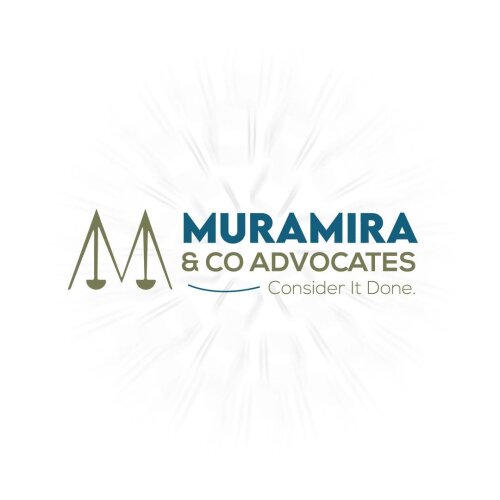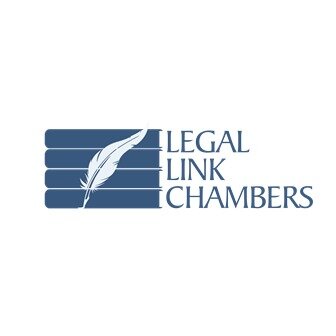Best Merger & Acquisition Lawyers in Kigali
Share your needs with us, get contacted by law firms.
Free. Takes 2 min.
List of the best lawyers in Kigali, Rwanda
About Merger & Acquisition Law in Kigali, Rwanda
Merger & Acquisition (M&A) law in Kigali, Rwanda, is a specialized field that focuses on the laws and regulations governing the consolidation of companies. With Rwanda's growing economy and its strategic vision for the future, the M&A landscape has been expanding. The process involves complex transactions, including mergers, acquisitions, and various forms of corporate restructuring. Kigali, being an emerging business hub, attracts both local and international firms looking to optimize their growth and competitiveness through M&A activities.
Why You May Need a Lawyer
Engaging in M&A activities can be intricate, requiring expert legal advice to navigate regulatory requirements and negotiate favorable terms. Here are some situations where you may need a lawyer:
- Valuing and assessing the potential of a merger or acquisition.
- Negotiating the terms and structuring the transaction.
- Conducting due diligence to evaluate risks and opportunities.
- Navigating regulatory approvals and compliance issues from Rwanda’s Capital Market Authority and other regulatory bodies.
- Advising on tax implications and optimizing the financial structure of the deal.
- Handling post-merger integration and restructuring.
Local Laws Overview
The legal framework governing M&A in Kigali is primarily influenced by Rwandan company law and competition regulations. The Rwanda Development Board (RDB) plays a vital role in facilitating M&A transactions through its supportive policies for business ventures. Key aspects include:
- Company Law: This law prescribes the requirements for forming, managing, and dissolving companies, essential in M&A transactions.
- Competition Law: Rwanda's competition laws ensure that mergers and acquisitions do not create monopolies or unfair market power.
- Investment Code: Provides guidelines for foreign investments, which is crucial for international parties involved in M&As.
- Tax Regulations: Understanding tax obligations and benefits for both domestic and cross-border M&As.
Frequently Asked Questions
What is the first step in pursuing a merger or acquisition in Kigali?
The initial step is to conduct a strategic assessment of the target company, focusing on its financial health, market position, and compliance with local regulations.
Do I need government approval for a merger or acquisition?
Yes, particularly for larger transactions or those involving foreign entities, you will need approvals from the Rwanda Development Board and possibly the Rwanda Revenue Authority.
What are the common challenges faced in M&A transactions in Kigali?
Challenges often include regulatory compliance, completing thorough due diligence, and aligning the interests of all stakeholders involved.
How long does an M&A transaction typically take in Kigali?
The timeline can vary significantly depending on the complexity of the deal, ranging from a few months to over a year.
Are there restrictions on foreign entities acquiring Rwandan companies?
While Rwanda encourages foreign investments, there are specific sectors where restrictions may apply, and compliance with the investment code is mandatory.
How does due diligence work in a Kigali M&A transaction?
Due diligence involves a comprehensive review of the target company's legal, financial, and operational aspects to uncover any potential liabilities or risks.
What role do local cultural considerations play in M&A deals?
Cultural understanding can be instrumental in negotiations and integration, influencing management styles and employee relations.
Can a merger be reversed once completed?
While theoretically possible, reversing a merger can be complicated and requires legal proceedings and substantial justification.
What tax implications should I consider in an M&A deal?
Tax considerations can affect the valuation and structuring of the deal and should be carefully evaluated with the help of tax advisors.
What is post-merger integration, and why is it important?
Post-merger integration is the process of combining and rearranging the merged companies to achieve synergies. It is essential for realizing the full value of the merger.
Additional Resources
To further assist you, consider consulting the following resources:
- Rwanda Development Board (RDB): Acts as a one-stop-shop for investors and provides guidelines on M&A processes.
- Capital Market Authority of Rwanda: Offers oversight and regulation of financial transactions in M&A.
- Local Law Firms: Many firms in Kigali specialize in M&A and can provide tailored legal advice and services.
- Chamber of Commerce: Provides networking opportunities and business support services.
Next Steps
If you find yourself in need of legal assistance with M&A in Kigali, it is advisable to:
- Identify and engage a reputable law firm with expertise in M&A transactions.
- Prepare all necessary documentation related to your business and the potential transaction.
- Conduct preliminary research or consultations to understand potential legal implications and financial forecasts.
- Work closely with legal advisors to outline your goals and strategy for the merger or acquisition.
Lawzana helps you find the best lawyers and law firms in Kigali through a curated and pre-screened list of qualified legal professionals. Our platform offers rankings and detailed profiles of attorneys and law firms, allowing you to compare based on practice areas, including Merger & Acquisition, experience, and client feedback.
Each profile includes a description of the firm's areas of practice, client reviews, team members and partners, year of establishment, spoken languages, office locations, contact information, social media presence, and any published articles or resources. Most firms on our platform speak English and are experienced in both local and international legal matters.
Get a quote from top-rated law firms in Kigali, Rwanda — quickly, securely, and without unnecessary hassle.
Disclaimer:
The information provided on this page is for general informational purposes only and does not constitute legal advice. While we strive to ensure the accuracy and relevance of the content, legal information may change over time, and interpretations of the law can vary. You should always consult with a qualified legal professional for advice specific to your situation.
We disclaim all liability for actions taken or not taken based on the content of this page. If you believe any information is incorrect or outdated, please contact us, and we will review and update it where appropriate.














